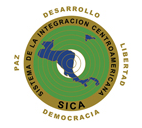The UN Environment Programme (UNEP), with help from the World Customs Organization (WCO) and the Central American Integration System (SICA), held a regional workshop to exchange experiences, tools and best practice regarding enforcement of trade controls on ozone depleting substances and to explore opportunities for cooperation in meeting their Montreal Protocol obligations regarding HCFCs.
 6 December 2012: The Central American Integration System (SICA) countries held a regional workshop to discuss experiences, tools and best practice and to coordinate strategies to enforce their obligations under the Montreal Protocol to implement and enforce a phaseout of hydrochlorofluorocarbons (HCFCs) consumption.
6 December 2012: The Central American Integration System (SICA) countries held a regional workshop to discuss experiences, tools and best practice and to coordinate strategies to enforce their obligations under the Montreal Protocol to implement and enforce a phaseout of hydrochlorofluorocarbons (HCFCs) consumption.
The workshop for National Ozone Units (NOUs) and customs authorities from Belize, Costa Rica, Dominican Republic, El Salvador, Guatemala, Honduras, Nicaragua and Panama was held in Managua, Nicaragua, from 4-5 December 2012.
Workshop discussions addressed how SICA countries plan to implement their HCFC Phaseout Management Plans (HPMPs) approved by the Executive Committee of the Montreal Protocol’s Multilateral Fund (MLF), and opportunities for authorities in the SICA member countries to coordinate and mutually support their implementation. Under the Protocol, starting in 2013 developing countries must freeze their HCFC imports at the levels matching the average of their 2009-2010 consumption, and must reduce their consumption 35% by 2020.
Among other things, the HPMPs of the eight countries call for capacity building in enforcement of trade control of HCFCs and HCFC-based products and equipment. The regional workshop addressed diverse challenges posed by their HPMPs, including the application of new import/export quotas, changes in the tariff codes introduced by the World Customs Organization (WCO), and new forms of illegal traffic in ozone-depleting substances (ODS).
As part of the workshop, experts from Argentina, Dominican Republic, Uruguay and the UN Environment Programme (UNEP) offered presentations on models and tools for the management, control and monitoring of ODS that might be adapted to the needs and capacities of SICA member countries to improve their enforcement efforts. Officials from Costa Rica, Dominican Republic, Honduras, Nicaragua and Panama also shared their objectives, perspectives and experiences regarding the development of strategies and projects envisioned in their HPMPs.
The regional workshop was organized and coordinated by the UNEP Regional Office for Latin America and the Caribbean (ROLAC), with technical support from the WCO and the Secretariat of the Central American Economic Integration System (SIECA), SICA’s economic arm, and financial support from the MLF. [IISD RS Sources]